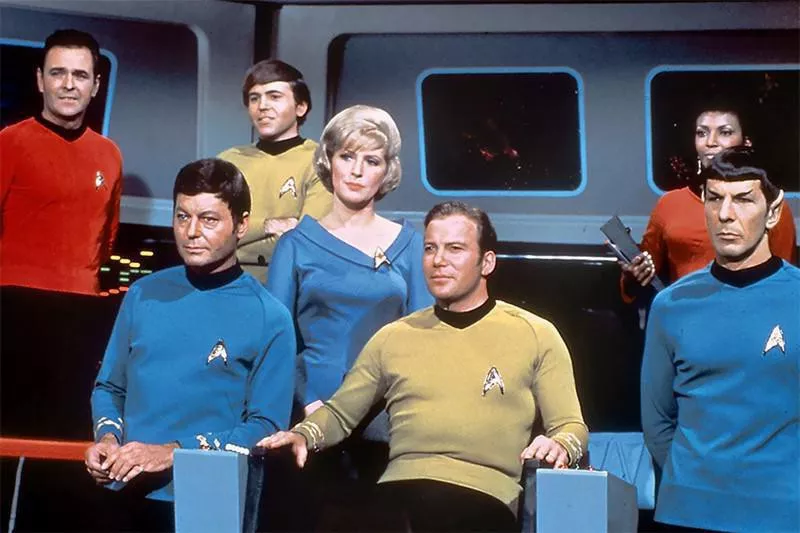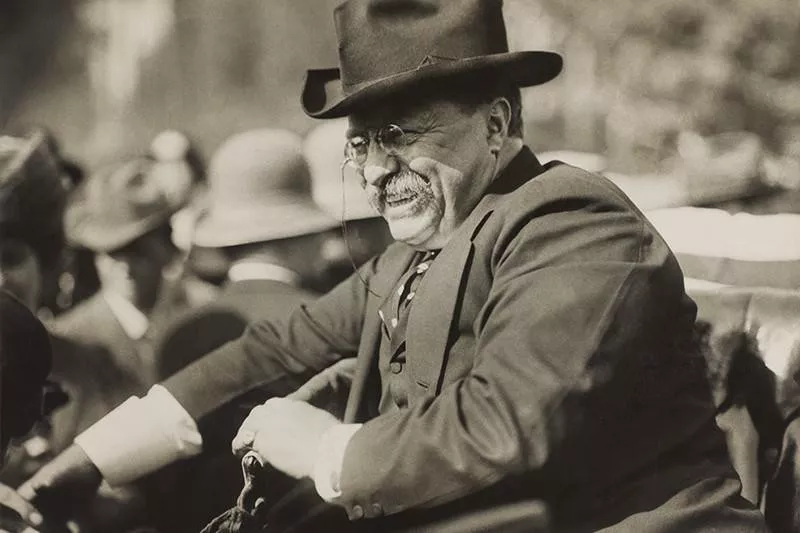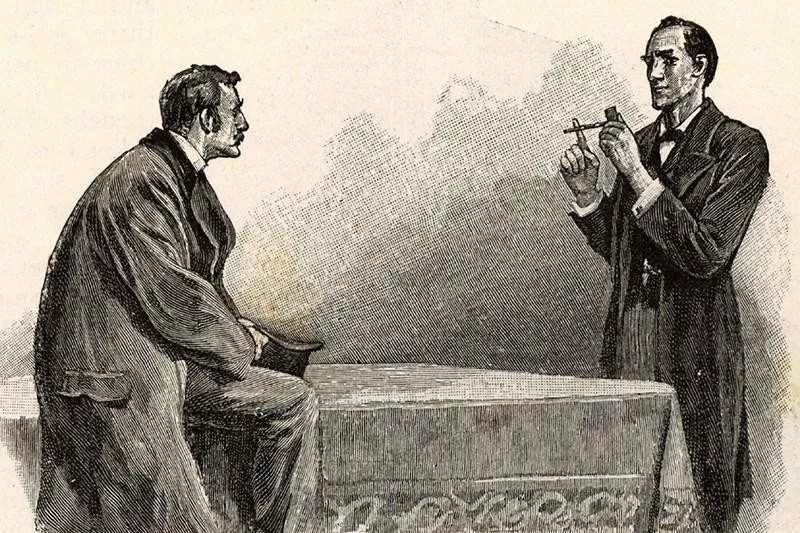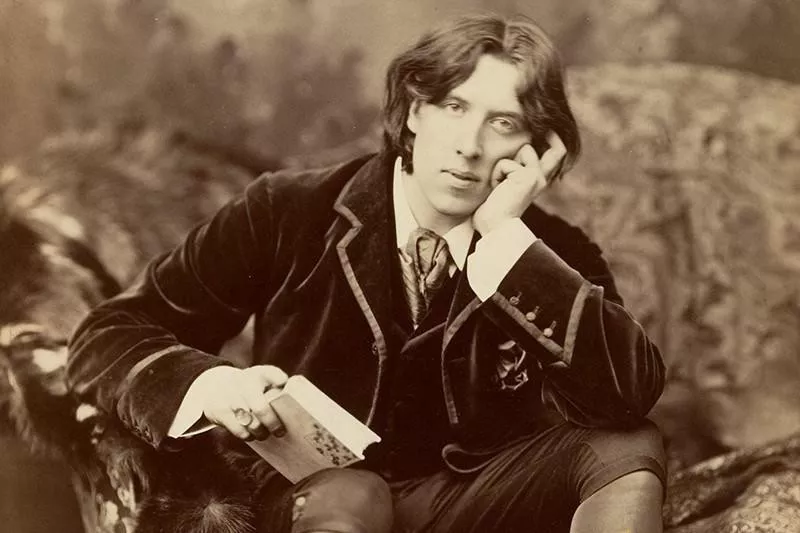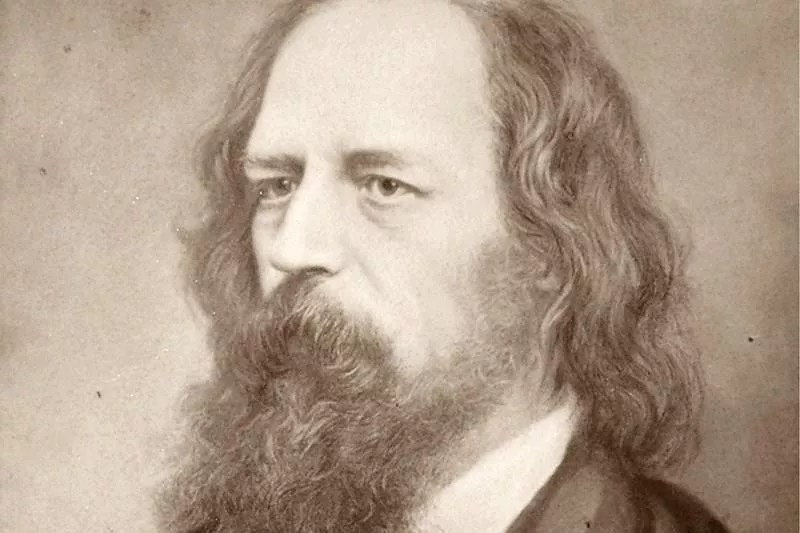We love our quotes. From favorite movie lines to nuggets of wisdom from world leaders and deep thinkers, we use quotes to hammer a point home and make ourselves look intelligent.
But sometimes, commonplace sayings are actually different than we think and show us that we might not be as smart as we think.
From misappropriated sayings to movie lines we just plain butcher, here are quotes we’ve been getting all wrong.
Poor Kitty

Quote: "Curiosity killed the cat."
Who said it: Ben Johnson
When it was said: 1598
What people get wrong: "Helter skelter, hang sorrow, care’ll kill a Cat, up-tails all, and a Louse for the Hangman."
Bottom Line: Poor Kitty
We all know about the nine lives our kitties have. The first sighting of something killing the cat came in Ben Johnson’s play "Every Man in His Humour."
The original form of the saying was "care killed the cat," but the word "care" doesn’t mean proper feeding and brushing. It actually means worry or to pester.
The line is basically saying to not ask too many questions or get nosey into someone else’s business, or it will come back to bite you.
That Took a Dark Turn.

Quote: "Rome wasn’t built in a day."
Who said it: Unknown French poet
When it was said: 1190
What people get wrong: "Rome wasn’t built in a day, but it was burned in one."
Bottom Line: That Took a Dark Turn.

Mauricio Artieda / Unsplash
See how we’ve lopped off the second half of this saying like an unwanted bud on a flower?
The way we say, "Rome wasn’t built in a day!" has come to mean that it takes hard work and time to create something worthwhile.
What we leave out is the part of the saying that implies it can be destroyed very quickly despite our efforts. So work hard and don’t play with matches.
Mmmm ... Pudding!

Quote: "The proof is in the pudding."
Who said it: Unknown
When it was said: 14th century
What people get wrong: "The proof of the pudding is in the eating."
Bottom Line: Mmmm ... Pudding!

Taylor Kiser / Unsplash
This is an odd case where the butchered version of the quote is generally used with the same intention as the original.
No, you don’t have to dig through a slop of pudding to find some sort of evidence or proof. The idea is that you can only gauge the quality of the pudding by eating it.
In other words, the product itself will prove it’s worth. Though we’ve lopped off much of the phrase, we still mean basically the same thing.
But What About an Octopus?
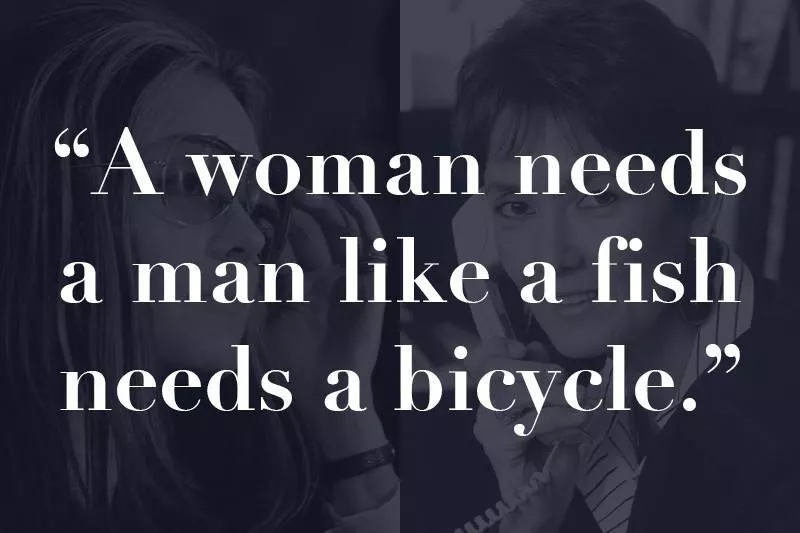
Quote: "A woman needs a man like a fish needs a bicycle."
Who said it: Gloria Steinem/Irina Dunn
When it was said: 1970s
What people get wrong: "A man needs God like a fish needs a bicycle."
Bottom Line: But What About an Octopus?
Gloria Steinem gets credited for this one frequently because she used it during the feminist movement. She openly credits Australian activist Irina Dunn for the quote, though.
The catch is that Dunn’s quote was a spin on the original phrase "A man needs God like a fish needs a bicycle."
In any case, maybe a fish doesn’t need a bike, but what if he just really wants one?
Butchering the Bard

Quote: "Gild the lily."
Who said it: William Shakespeare
When it was said: 1623 (published)
What people get wrong: "To gild refined gold, to paint the lily."
Bottom Line: Butchering the Bard
William Shakespeare had a way with words, and it’s not always easy to interpret his meaning. In his play, "King John," he wrote. "To gild refined gold, to paint the lily, to throw a perfume on the violet, to smooth the ice…"
In other words, he’s talking about trying to improve something that doesn’t need improving. Not only have we shortened his line dramatically, but we also mixed the metaphors so that it doesn’t even make sense anymore.
Sorry, Will.
Mom’s Bad Advice

Quote: Starve a cold, feed a fever.
Who said it: John Withals
When it was said: 1574
What people get wrong: "Fasting is a great remedy of fever."
Bottom Line: Mom’s Bad Advice

Kelly Sikkema / Unsplash
We’ve all probably heard our mothers say this one at some point during our childhoods. John Withals said in his 1574 dictionary that "fasting is a great remedy of fever."
The idea was that if the body is hot, give it less fuel to burn. Therefore, it seems logical that if your body is cold, you should ramp up the fuel, right?
According to Wedmd.com, the best phrase should be, “Feed a cold, feed a fever.”
Gandhi Said It. Sort Of.

Quote: Be the change you wish to see in the world.
Who said it: Mahatma Gandhi
When it was said: 1913
What people get wrong: "If we could change ourselves, the tendencies in the world would also change. As a man changes his own nature, so does the attitude of the world change towards him. ... We need not wait to see what others do.”
Bottom Line: Gandhi Said It. Sort Of.

James A. Mills / AP Photo
In short, someone paraphrased Gandhi, and now we all just assume that he said it that way.
The longer version doesn’t necessarily state that you can change the world just by changing yourself but considers it more of a starting point.
But since that doesn’t fit neatly onto a T-shirt, we’ve made it a bit more quippy. I bet Gandhi’s OK with it. He seems like a pretty laid-back kind of guy.
Mo Money, Mo Problems?

Quote: "Money is the root of all evil."
Who said it: The Bible, Timothy 6:10 (King James Version)
When it was said: Biblical times
What people get wrong: The actual Bible verse reads: "For the love of money is the root of all evil: which while some coveted after, they have erred from the faith, and pierced themselves through with many sorrows."
Bottom Line: Mo Money, Mo Problems?

Vitaly Taranov / Unsplash
Sometimes when we shorten a quote to make it catchier, we skew the original meaning. Money is not the root of all evil. It’s the love of money that’s guilty.
Don’t blame the almighty dollar (or drachma, or yen, or any currency), it’s our own weak natures that cause trouble.
This doesn’t mean you can’t still rummage through your couch cushions for loose change. Just don’t push someone off to get at it.
Wolves, Lions, and Lambs, Oh My!

Quote: "The lion shall lay down with the lamb."
Who said it: The Bible, Isiah 11:16 (King James Version)
When it was said: Biblical times
What people get wrong: "The wolf also shall dwell with the lamb, and the leopard shall lie down with the kid; and the calf and the young lion and the fatling together; and a little child shall lead them."
Bottom Line: Wolves, Lions, and Lambs, Oh My!

Mauricio Fanfa / Unsplash
Wolves, lambs, leopards, goats, lions and little kids? What is going on here? No, it’s not a weird scene from Noah’s Ark.
The gist of this verse in Isiah is that upon the return of God, all creatures will get along, and there will be peace. It’s unclear why we’ve shortened it to "The lions shall lay down with the lamb," because the verse puts the wolf with the lamb.
At least the idea remains the same.
Houston, We Have a Hearing Problem.
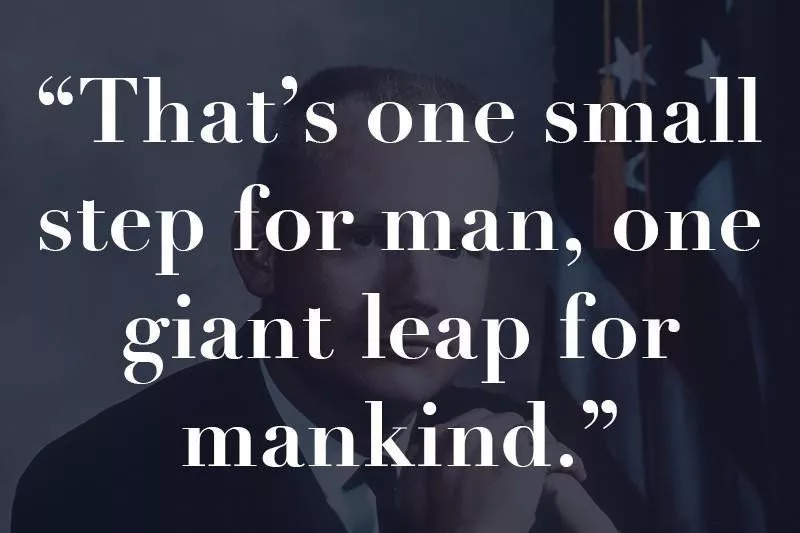
Quote: "That’s one small step for man, one giant leap for mankind."
Who said it: Neil Armstrong
When it was said: 1969
What people get wrong: "That’s one small step for a man, one giant leap for mankind."
Bottom Line: Houston, We Have a Hearing Problem.
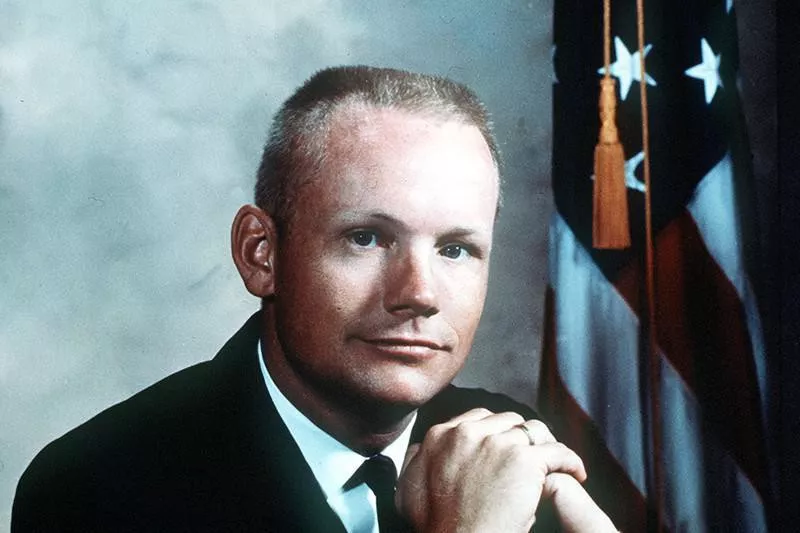
NASA / AP Photo
Unbelievably, our audio capabilities to the moon and back in 1969 were not exactly hi-def.
Neil Armstrong really said, "That’s one small step for a man…" which actually makes a lot more sense. Man and mankind are synonymous. When you add "a" in there, you’re speaking to the difference between one person and mankind as a whole.
We just didn’t hear it properly.
It’s Hard to Be Eloquent in a Loincloth

Quote: "Me Tarzan, you Jane."
Who said it: Tarzan in "Tarzan, the Ape Man"
When it was said: 1932
What people get wrong: It was never said in the movie, nor any Tarzan movies or books.
Bottom Line: It’s Hard to Be Eloquent in a Loincloth
Really? The most iconic line from our favorite raised-by-apes jungle guy never really happened?
In the 1932 movie, he simply keeps pointing back and forth between Jane and himself saying, "Jane! Tarzan! Jane! Tarzan!" That’s kind of boring.
At least this misquote led to one of the funniest "Far Side" comics ever.
Let’s Reflect on This One.

Quote: "Mirror, mirror, on the wall, who’s the fairest of them all?"
Who said it: The Queen in "Snow White"
When it was said: 1937
What people get wrong: "Magic mirror on the wall, who is the fairest one of all?"
Bottom Line: Let’s Reflect on This One.
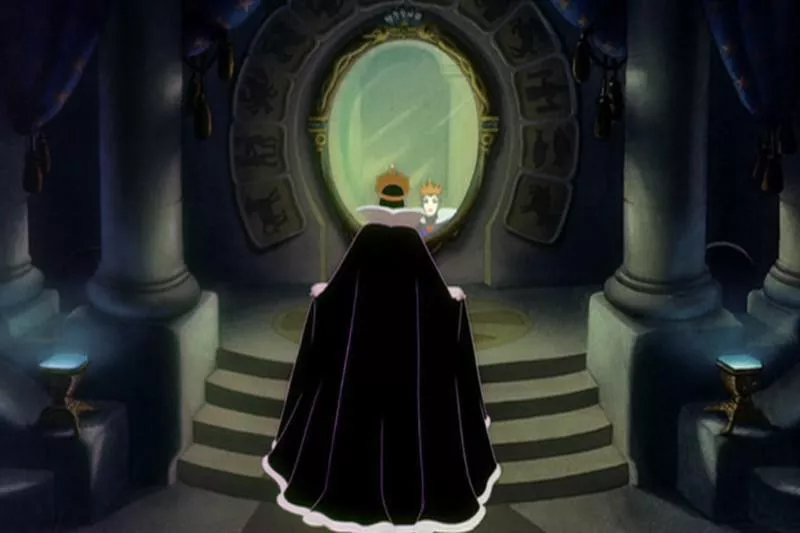
Walt Disney / IMDB
Sometimes we get a quote wrong so often that it just becomes the new standard. Why "magic mirror" became "mirror, mirror" is a bit of a mystery. However, people seem to like it.
In 2012, "Mirror, Mirror" was used as the title of a Snow White movie starring Julia Roberts.
If it’s good enough for Julia, it’s good enough for us. Sometimes wrong just feels right.
This Seems Illogical.
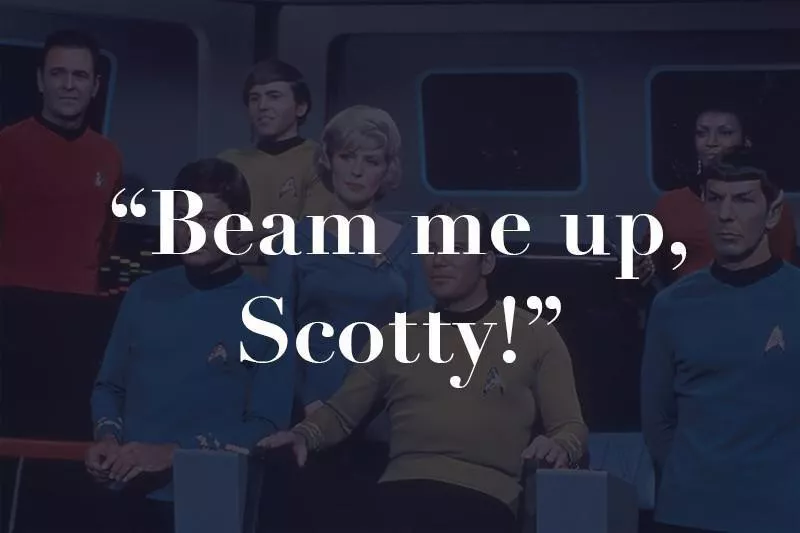
Quote: "Beam me up, Scotty!"
Who said it: Any Star Trek character
When it was said: 1970s
What people get wrong: This phrase was never said during the original series at all.
Bottom Line: This Seems Illogical.
Wait, what? Captain Kirk never said, "Beam me up, Scotty?" Nope. Neither did Spock, Bones, or any poor sucker wearing a red uniform while out on an away team.
They do say, "Beam me up" and some other variations, but not the famous version we’ve come to know and love.
Don’t worry, Scotty’s "They’ll be no tribble at all' line is 100 percent legit.
Sorry, We Got Our Stars Crossed.

Quote: "A rose by any other name smells just as sweet."
Who said it: Juliet
When it was said: 1599
What people get wrong: "What’s in a name? That which we call a rose, By any other word would smell as sweet."
Bottom Line: Sorry, We Got Our Stars Crossed.
These words are spoken by Juliet Capulet in "Romeo and Juliet" as she tries to reason out why she and Romeo should be enemies just because of their surnames.
While the common misquoted line doesn’t really change the meaning of the words, it’s just not how Shakespeare put it.
We should try to get it right. Who are we to say that The Bard got it wrong?
Surely You Jest. Oops! Not Anymore.

Quote: "Alas, poor Yorick, I knew him well."
Who said it: Hamlet
When it was said: 1603
What people get wrong: "Alas, poor Yorick. I knew him, Horatio – a fellow of infinite jest, of most excellent fancy."
Surely You Jest. Oops! Not Anymore.
In one of Hamlet's soliloquies, he goes on about poor Yorick, calling him "a fellow of infinite jest, of most excellent fancy." For some reason, that’s just too much for us to digest these days.
We’ve managed to butcher that down to "I knew him well." Come on, he was the court jester. He deserves a bit more fun than that, doesn’t he?
If you don’t like fancy talk, Shakespeare may not be your guy.
It’s Even Worse Than Hangry.
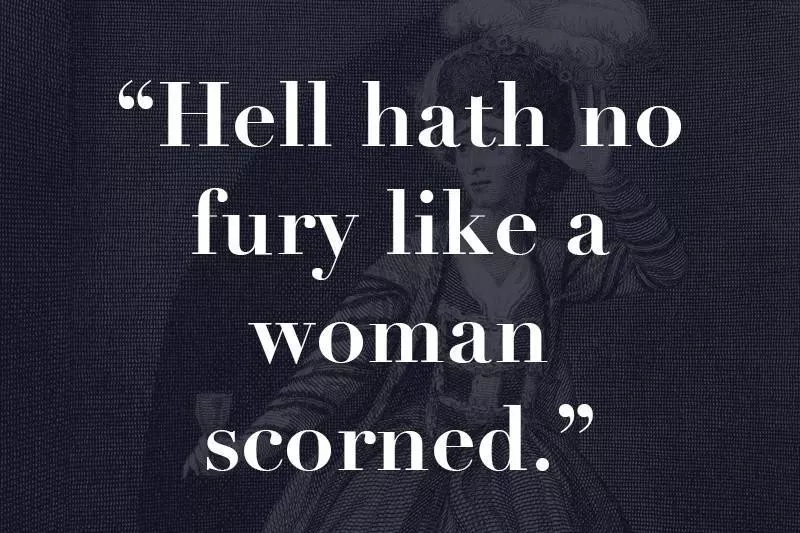
Quote: "Hell hath no fury like a woman scorned."
Who said it: William Congreve
When it was said: 1697
What people get wrong: "Heav’n has no rage like love to hatred turn’d Nor Hell a fury, like a woman scorn’d."
Bottom Line: It’s Even Worse Than Hangry.
This line comes from William Congreve's play, "The Mourning Bride." The line from the play gives us a bit more context, but in all honesty, our modern, abbreviated version probably gets the point across.
This line is frequently attributed to Shakespeare, because, well, it sounds like something he’d write, doesn’t it?
One would think that Congreve could feel a bit scorned by that, but since he’s a guy, we’re not too worried about it.
When Honesty Is Actually a Lie

Quote: "I cannot tell a lie."
Who said it: George Washington
When it was said: 1738
What people get wrong: This never happened, and Washington never said it.
Bottom Line: When Honesty Is Actually a Lie
One of the most enduring tales of the first president of the United States of America is that his father saw a cherry tree that had been cut.
When he asked his son about it, George replied with, “I cannot tell a lie. I cut the tree" or some variation of that.
However, the tale was a fabrication of Washington’s biographer Mason Locke Weems, who was trying to add some flair to the "virtues" of old George.
Voltaire’s Very Fair. Supposedly.
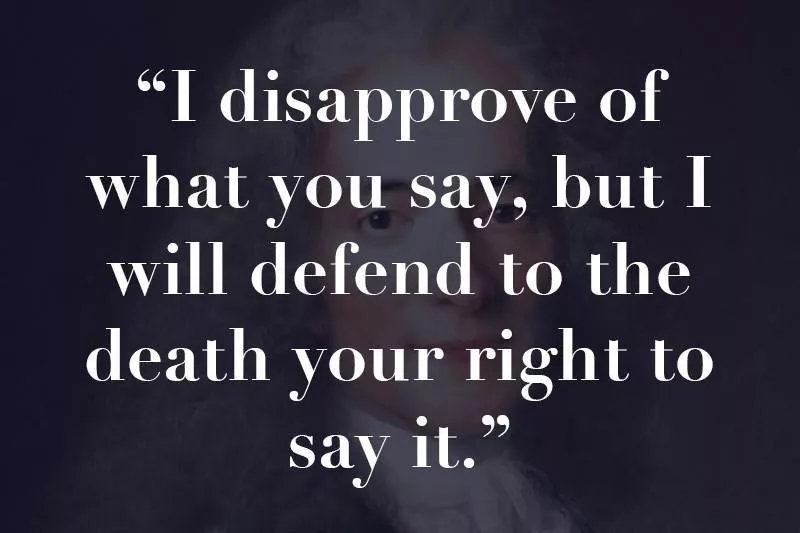
Quote: "I disapprove of what you say, but I will defend to the death your right to say it."
Who said it: Voltaire
When it was said: 1758
What people get wrong: Voltaire never said this.
Bottom Line: Voltaire’s Very Fair. Supposedly.
This quote, usually attributed to Voltaire, was not his. It was a summary of his attitude made by biographer S. G. Tallentyre, which was the pseudonym of historian Evelyn Beatrice Hall.
After hearing that a contemporary author’s work was being burned Voltaire said, "How abominably unjust to persecute a man for such an airy trifle as that!"
Though he didn’t like the book, he felt the public’s reaction was unjust. He’d probably defend your right to misquote him, too.
When You Find Yourself in the Obituaries
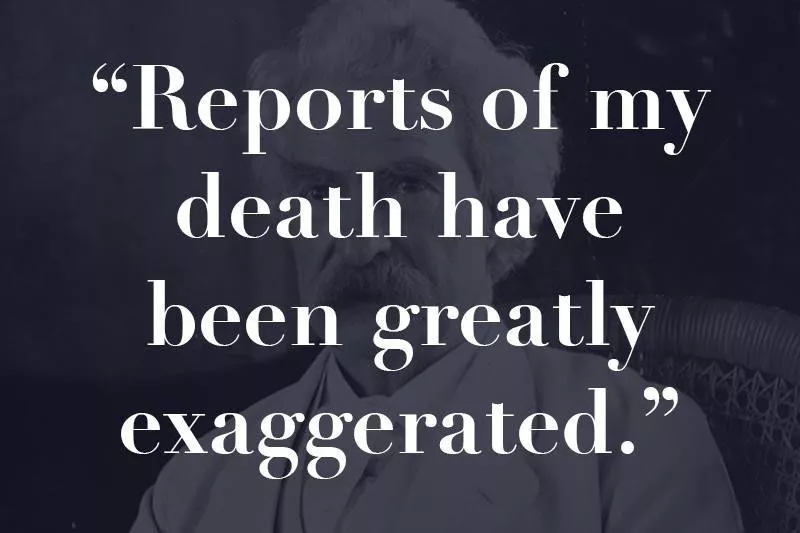
Quote: "Reports of my death have been greatly exaggerated."
Who said it: Mark Twain
When it was said: 1897
What people get wrong: "James Ross Clemens, a cousin of mine, was seriously ill two or three weeks ago in London, but is well now. The report of my illness grew out of his illness. The report of my death was an exaggeration."
Bottom Line: When You Find Yourself in the Obituaries
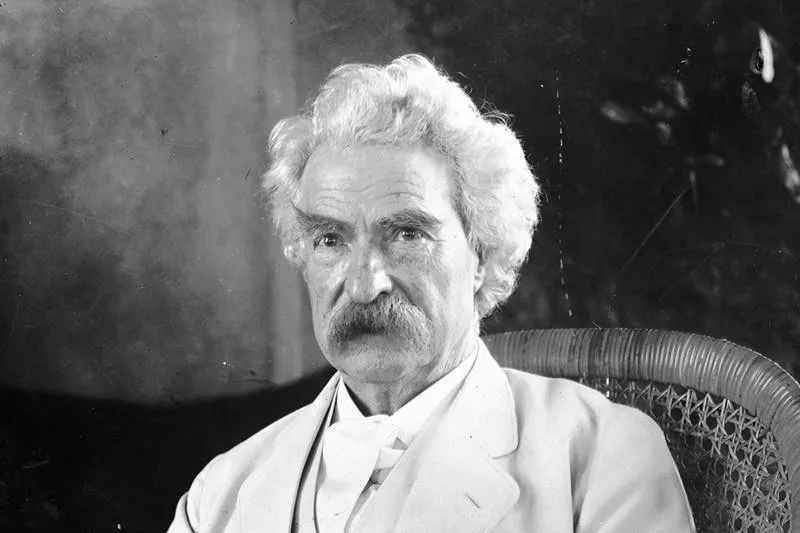
SoDakPB / Twitter
Mark Twain was never at a loss for words. Even when there were newspaper reports on his own death, he kept his sense of humor.
When asked by letter to report on his health to a reporter from The New York Journal, he replied, "I have even heard on good authority that I was dead."
He went on to explain the mistake. However, what he said has morphed from a logical explanation to a quippy phrase.
Mmm ... Smells Gassy.

Quote: "I love the smell of napalm in the morning! It smells like victory."
Who said it: Lieutenant Colonel Bill Kilgore in "Apocalypse Now"
When it was said: 1979
What people get wrong: "Napalm, son. Nothing else in the world smells like that. I love the smell of napalm in the morning. You know, one time we had a hill bombed, for 12 hours. When it was all over, I walked up. We didn't find one of 'em, not one stinkin' dink body. The smell, you know that gasoline smell? The whole hill. Smelled like ... victory. Someday this war's gonna end."
Bottom Line: Mmm ... Smells Gassy.
"Apocalypse Now" is one of the most intense modern war movies out there. The memorable line from the movie came from Robert Duvall’s character, Kilgore.
But the way it’s usually quoted is a very abbreviated version of what he actually said in the film. Does it do his little speech justice? Maybe. It still has the shock value, but it may lack some of the gravitas.
Most of us prefer the smell of bacon in the morning anyway.
What’s Beneath My Feet?

Quote: "The journey of a thousand miles begins with a single step."
Who said it: Lao Tzu
When it was said: 4th-6th century B.C.
What people get wrong: "A journey of a thousand li [a Chinese mile] starts beneath one's feet" Also commonly attributed to Confucius.
Bottom Line: What’s Beneath My Feet?

fullwayoflife / Twitter
It’s easy to see where we could get a few words wrong when quoting someone from 2,500 years ago. So what does "starts beneath one’s feet" mean? Lao Tzu is talking about motion.
He’s not necessarily calling out that first step, but the idea of motion version immobility. We may be picking at nits here, but there is a difference.
Plus, many people want to give credit to Confucius, because we think only he and Groucho Marx said things that profound.
To Whisper or to Tiptoe, That Is the Question.
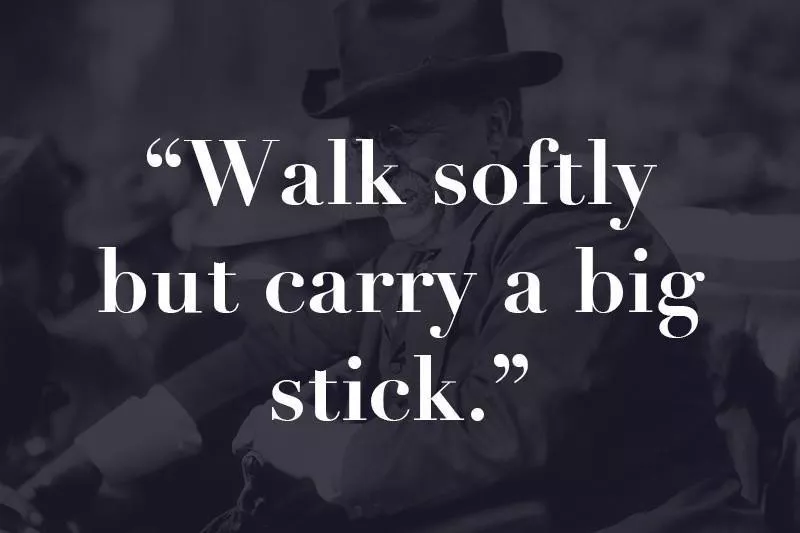
Quote: "Walk softly but carry a big stick."
Who said it: Teddy Roosevelt
When it was said: 1901
What people get wrong: "Speak softly and carry a big stick; you will go far."
Bottom Line: To Whisper or to Tiptoe, That Is the Question.
Teddy Roosevelt liked this saying and claimed it is a West African proverb. He used it when speaking to his strategy when dealing with foreign affairs.
It’s somehow morphed into "walk softly" rather than "talk softly" over time. The subtle change matters, though.
While someone who calmly and quietly talks to you while wielding a big stick can be intimidating, no one worries about a person tiptoeing around with a branch.
Sometimes Less Is More.

Quote: "Go confidently in the direction of your dreams! Live the life you’ve imagined."
Who said it: Henry David Thoreau
When it was said: 1854
What people get wrong: "[I]f one advances confidently in the direction of his dreams, and endeavors to live the life which he has imagined, he will meet with a success unexpected in common hours."
Bottom Line: Sometimes Less Is More.
We get it. Thoreau could get a bit wordy.
Somewhere along the line, some high school English teacher who needed to fit this phrase on the program for the next graduating senior class made some pretty significant edits. OK, that’s just a guess.
Luckily, as an existentialist, Thoreau believed in personal freedom and choice. Therefore, he’d say you can edit it down if it works for you. Nice people, those existentialists.
Now We Feel Suckered.
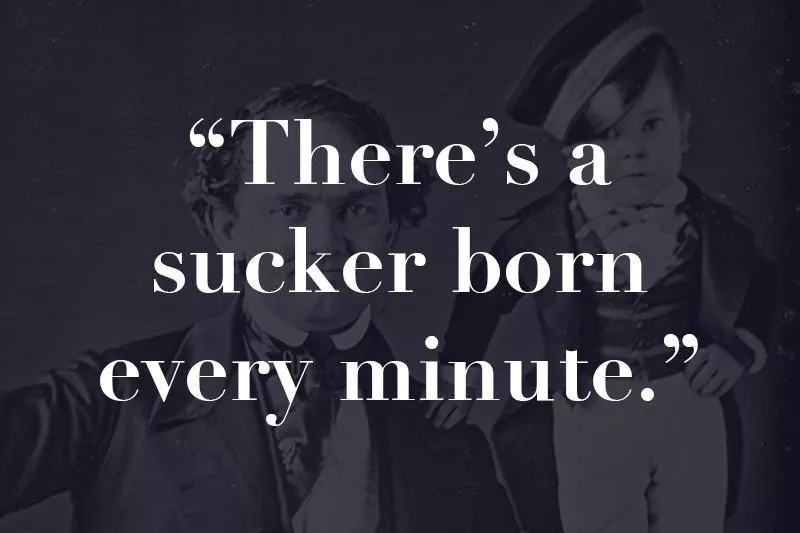
Quote: "There’s a sucker born every minute."
Who said it: P.T Barnum
When it was said: N/A
What people get wrong: He never said it.
Bottom Line: Now We Feel Suckered.
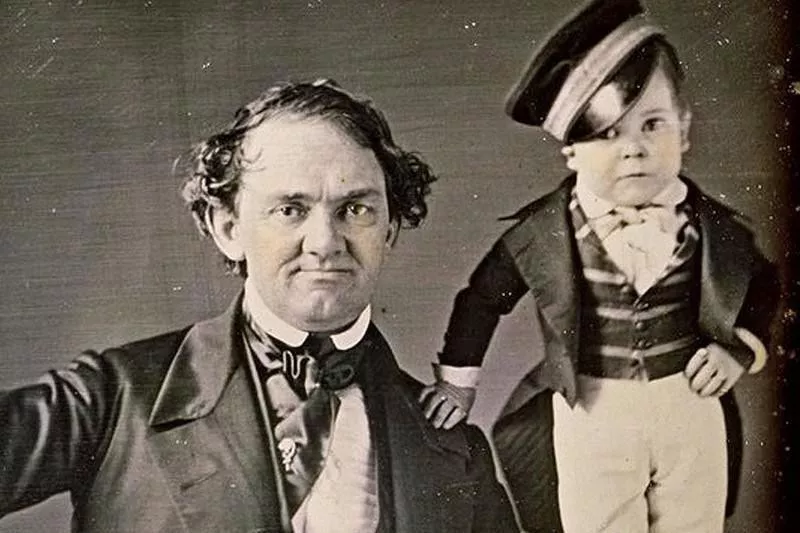
JaneHoodless / Twitter
There’s no evidence that P.T. Barnum ever said this famous quote. This line (and several variations of it) have shown up throughout history, usually in reference to people getting hoodwinked in some way or another.
Some suggest that this was actually said by one of P.T. Barnum’s contemporaries as a commentary on his show. Critics were mean, even back in the 1800s.
One way or another, "The Greatest Showman" and his circus got by OK.
Let’s Not Lose Our Heads Over This.
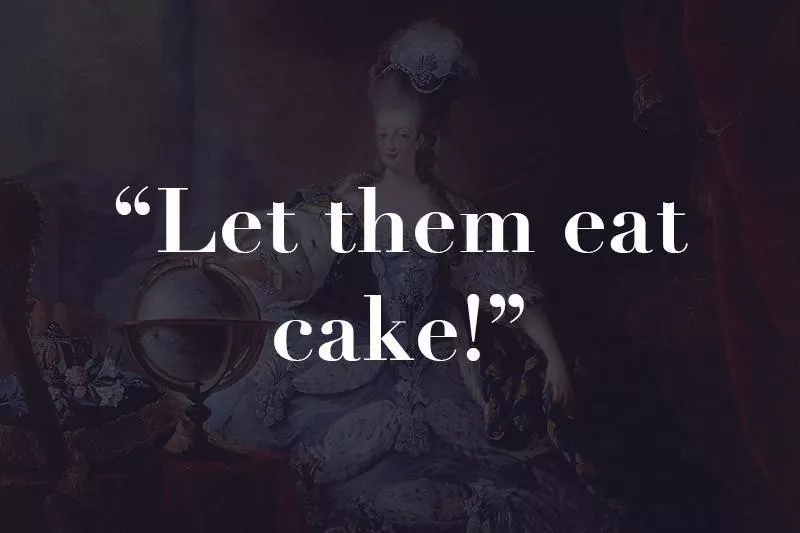
Quote: "Let them eat cake!"
Who said it: Marie Antoinette
When it was said: Approx. 1790
What people get wrong: She didn’t say it.
Bottom Line: Let’s Not Lose Our Heads Over This.
Do you remember the first time you head this one? If you were still a kid, you probably thought that Marie Antoinette was the coolest leader ever. However, she probably didn’t say it.
French philosopher Jean-Jacques Rousseau credited the phrase "Qu’ils mangent de la brioche" to a "great princess." Marie Antoinette was too young at the time to be the likely source.
Also, brioche is a rich bread. It’s not like birthday cake, so it’s disappointing all around.
No! Nooooooo!

Quote: "Luke, I am your father."
Who said it: Darth Vader in "The Empire Strikes Back"
When it was said: 1980
What people get wrong: The actual line is "No, I am your father."
Bottom Line: No! Nooooooo!

20th Century Fox / IMDB
This line ... was ... devastating! If you gobbled up "Star Wars: A New Hope" and were anxiously waiting for the next installment, you were probably not disappointed. "Star Wars: The Empire Strikes Back" is widely considered the best of all the Star Wars films.
No moment was bigger than the moment when Darth Vader revealed to Luke that he was, indeed, Anakin Skywalker, Luke’s pop. Yet we still get it wrong.
Perhaps we were too devastated to hear it properly.
Maybe They Should Have Had a Jukebox.
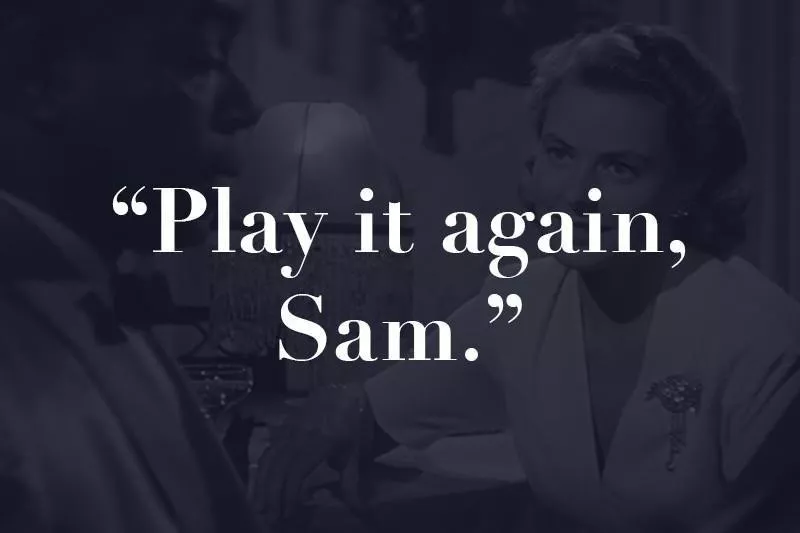
Quote "Play it again, Sam"
Who said it: Ilsa Lund (Ingrid Bergman) in "Casablanca"
When it was said: 1942
What people get wrong: "Play it, Sam. Play 'As Time Goes By.'"
Bottom Line: Maybe They Should Have Had a Jukebox.
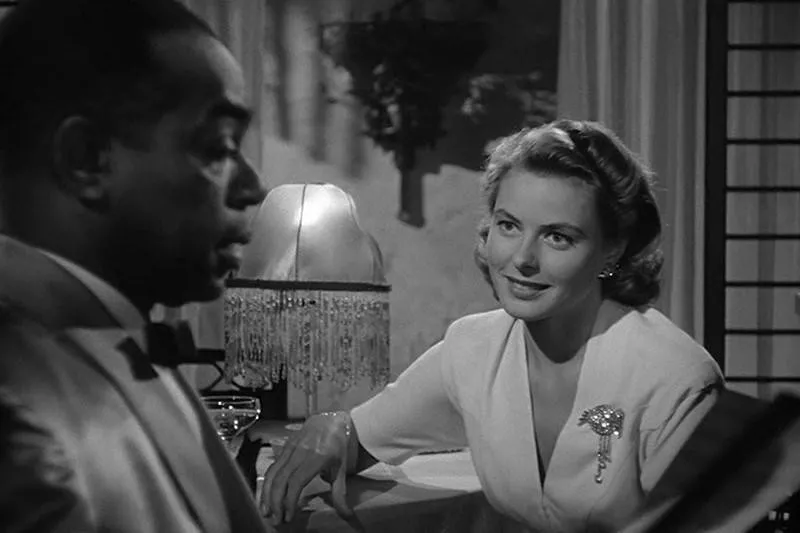
Warner Bros. / IMDB
A classic line from a classic movie that’s become, unfortunately, a classic goof. People seem to think that Humphrey Bogart said, "Play it again, Sam," but it was Ilsa Lund, played by Ingrid Bergman.
Oh, and she didn’t say it that way. What she said was, "Play it, Sam. Play 'As Time Goes By.'" Later on in the movie, Bogart’s character does say, "You played it for her, you can play it for me!"
Has anyone thought that maybe Sam is just sick of that song?
I Build Space Stuff and I’m Famous for That?

Quote: "Anything that can go wrong, will."
Who said it: Edward Murphy
When it was said: 1949
What people get wrong: According to Edward Murphy’s son, Robert, his father's statement was along the lines of "If there's more than one way to do a job, and one of those ways will result in disaster, then he will do it that way."
Bottom Line: I Build Space Stuff and I’m Famous for That?
This is another phrase that seems to be older than we think. Edward Murphy, an aerospace engineer, wasn’t thrilled to have this phrase attached to him.
His contemporaries took it as a precaution to guard against all possible outcomes when running tests. Today, it’s more of an announcement of futility.
Imagine going to years of school and training to be an aerospace engineer, and you’re best remembered for a pessimistic phrase you muttered one day. Bummer.
We Sleuthed This One Out for You.
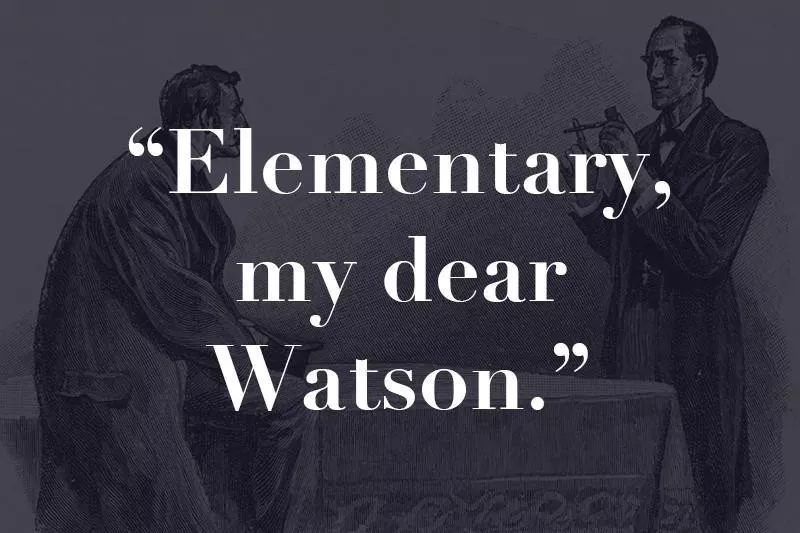
Quote: "Elementary, my dear Watson."
Who said it: Sherlock Holmes
When it was said: N/A
What people get wrong: He never said this.
Bottom Line: We Sleuthed This One Out for You.
The most famous words uttered by the world’s most famous fictional investigator were never actually said. OK, this is only partially true.
If you’re loyal to the original books by Arthur Conan Doyle, it’s true. While Sherlock did say, "elementary" at points and "my dear, Watson" at other points, he never put them together. Modern film and television versions, however, have used it ad nauseam.
So, if you say this, you’re basically announcing that you never read the books.
This One Is Wilde-ly Inaccurate!
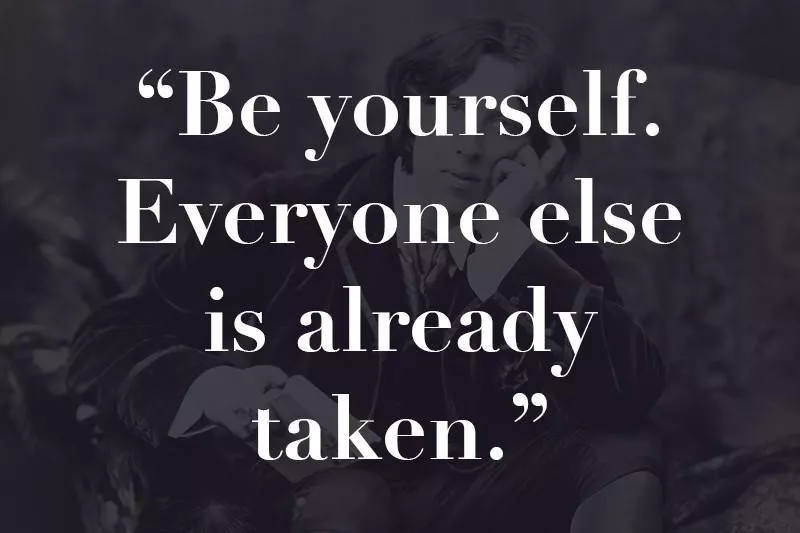
Quote: "Be yourself. Everyone else is already taken."
Who said it: Oscar Wilde
When it was said: 1967
What people get wrong: Wilde never said it.
Bottom Line: This One Is Wilde-ly Inaccurate!
Once again, we’ve put words into the mouth (or pen) of a famous person with no evidence that they ever said it.
In 1967, Thomas Merton published an essay that said, "I reserve to myself the right to forget about being myself, since in any case there is very little chance of my being anybody else," and that’s about as close as we can get to the quote.
But if you like the quote, you probably should just come up with something originally yours and quit using other people’s words anyway, right?
Who Said It Best?

Quote: "The ends justify the means."
Who said it: Machiavelli
When it was said: 1532
What people get wrong: "In judging policies we should consider the results that have been achieved through them rather than the means by which they have been executed."
Bottom Line: Who Said It Best?
When it comes to politics, good old Machiavelli is kind of the godfather of unscrupulous tactics. His political manifesto "The Prince" is considered one of the finest works of political philosophy out there, but it’s not for the faint of heart.
He never actually said, "The ends justify the means" in his work. What he said was "We should consider the results."
It seems we’ve kind of mashed the two together.
It’s Not About Pulling All-Nighters.

Quote: "There’s no rest for the wicked."
Who said it: The Bible, Isiah 48:22
When it was said: Biblical times
What people get wrong: "There is no peace, saith the Lord, unto the wicked."
Bottom Line: It’s Not About Pulling All-Nighters.

Aaron Burden / Unsplash
Not only do we paraphrase this one a lot, but we’re also kind of missing the point. The Bible verse is talking about the inner turmoil of wicked people.
It follows up in Isiah 57:20 with "But the wicked are like the tossing sea, For it cannot be quiet, And its waters toss up refuse and mud."
It’s not really a mantra for people who have to stay late on Friday night at work.
Good News for Nice Guys!

Quote: "Nice guys finish last."
Who said it: Leo Durocher
When it was said: 1946
What people get wrong: "Take a look at them. They’re all nice guys, but they’ll finish last. Nice guys. Finish last."
Bottom Line: Good News for Nice Guys!

AP Photo
Sometimes when we get a quote wrong, we really skew the message. In this case, Leo Durocher, the famous manager of the Brooklyn Dodgers made a simple observation about a rival team.
He said, "They’re all nice guys, but they’ll finish last." Somehow, we’ve turned that into all nice guys finish last. Yikes. We’ve jumped from one unlucky bunch of fellas to dooming all decent guys.
That’s a real bummer.
We’re Lucky to Even Have This Saying.
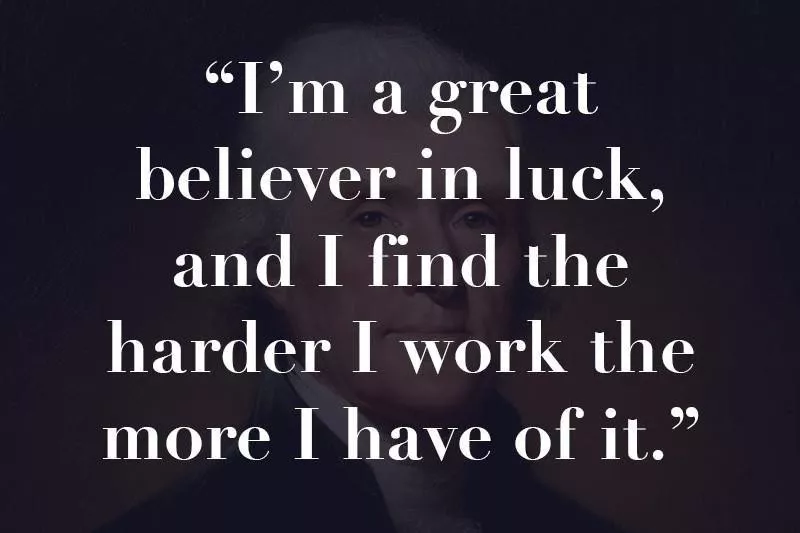
Quote: "I’m a great believer in luck, and I find the harder I work the more I have of it."
Who said it: Thomas Jefferson
When it was said: N/A
What people get wrong: There’s no evidence that he said it.
Bottom Line: We’re Lucky to Even Have This Saying.
Sometimes finding out that we’ve had a quote attributed incorrectly is just disappointing. The quote is a nice, useful line that can motivate people to "make their own luck." Having it come from one of our founding fathers adds credence to the words.
However, Monticello.org, a webpage dedicated to Thomas Jefferson states: "Neither this statement nor any variations thereof have ever been found in Thomas Jefferson's writings."
So where did it come from?
Naughty Girls Make Waves.
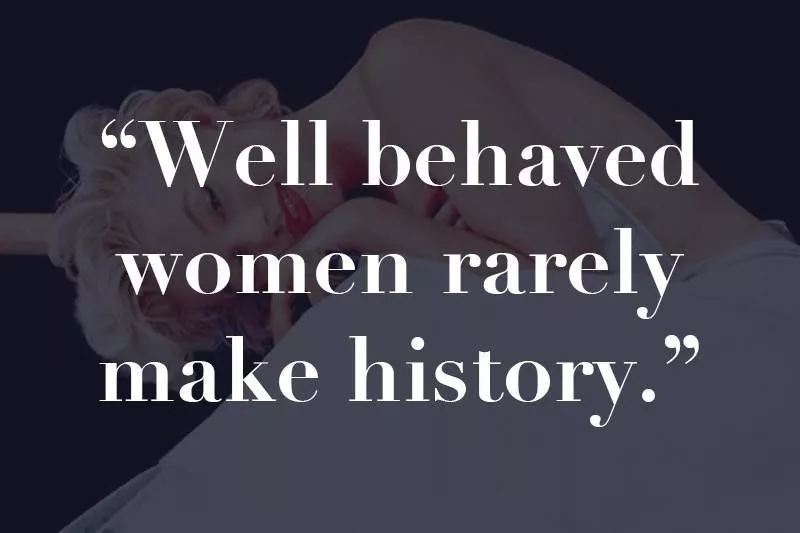
Quote: "Well behaved women rarely make history."
Who said it: Marilyn Monroe
When it was said: 1950s
What people get wrong: Misattributed to Marilyn. Also, "Well behaved women seldom make history."
Bottom Line: Naughty Girls Make Waves.

MarilynDiary / Twitter
It makes sense that Marilyn Monroe would say this, right? She certainly made history, and we at least liked to think that she wasn’t well behaved.
The quote actually belongs to a professor from Harvard University named Laurel Thatcher Ulrich. She penned the line in an academic paper in the journal "American Quarterly" in 1976.
She felt that too many history books highlighted "virtuous" women and not the women who actually did more important things.
The Voices Were Right Either Way.

Quote: "If you build it, they will come."
Who said it: The voices in Ray Kinsella’s head
When it was said: 1989
What people get wrong: It should be "If you build it he will come."
Bottom Line: The Voices Were Right Either Way.
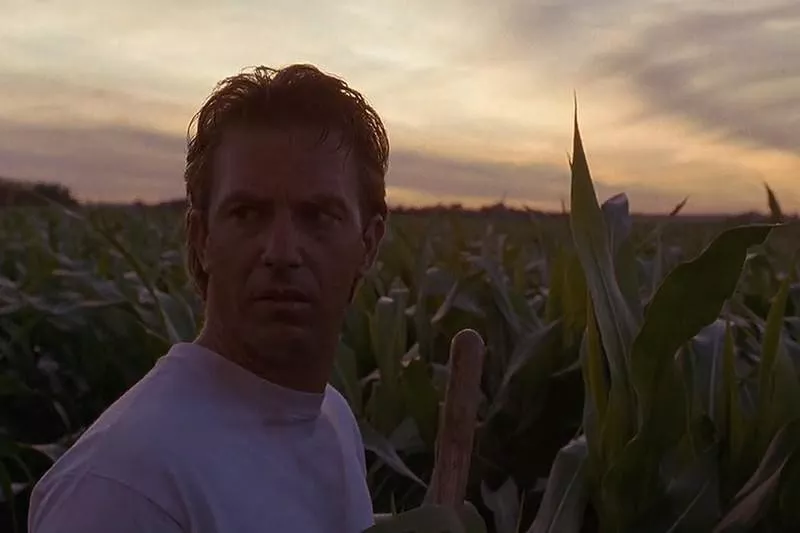
Universal Pictures / IMDB
"Field of Dreams" is one of the quintessential baseball movies. Based on W.P. Kinsella’s book, "Shoeless Joe," it captures some of the mysticism and romance in the game.
The quote, as we tend to say it, hinges on the idea that if Ray builds his ball field, people will show up, and he’ll make enough money to save the farm.
In reality, the quote is saying "he" will come, which changes the focus to a more personal matter, the appearance of Ray’s father.
Worst Pep Talk Ever.
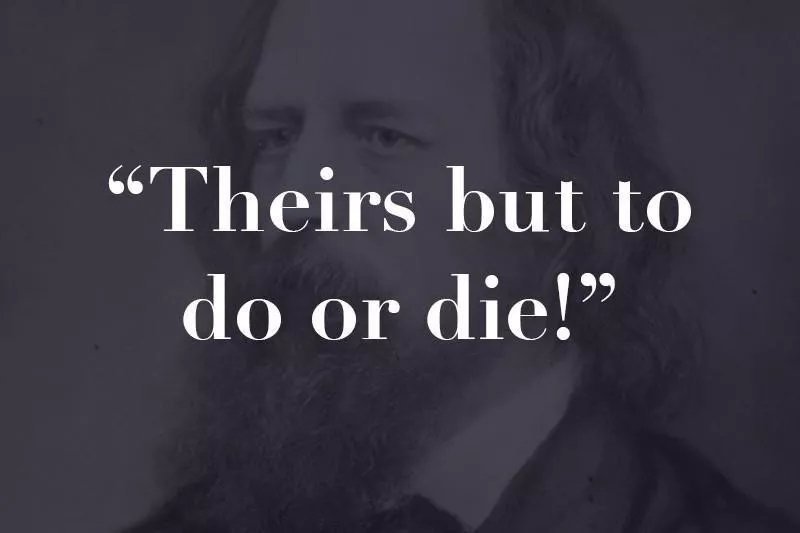
Quote: "Theirs but to do or die!"
Who said it: Alfred Lord Tennyson
When it was said: 1854
What people get wrong: "Theirs not to reason why, Theirs but to do and die."
Bottom Line: Worst Pep Talk Ever.
The way we commonly say this quote sounds like a battle cry to succeed (do) or suffer the consequence (die).
Tennyson's poem, "The Charge of the Light Brigade," is a tribute to a failed British military mission against Russian forces at the Battle of Balaclava during the Crimean War. You might note that the poem says to do and die, not to do or die.
You may want to think twice before shouting this one out as a pep talk to your kids or coworkers.
Don’t Play the Flute for a Werewolf. Run!

Quote: "Music soothes the savage beast."
Who said it: William Congreve
When it was said: 1697
What people get wrong: "Musick has charms to sooth a savage breast."
Bottom Line: Don’t Play the Flute for a Werewolf. Run!
How many times have you seen this in a movie? A monster, or beast if you will, is rampaging until someone plays a nice soft melody. Then, it’s entranced and calm. Yeah, that’s not what this quote is really about.
The line as Congreve wrote it, "Musick has charms to sooth a savage breast" is really referencing the ability of music to calm our own emotional turmoil.
Sorry to ruin "Young Frankenstein" for you.
A Bumpy What Now?
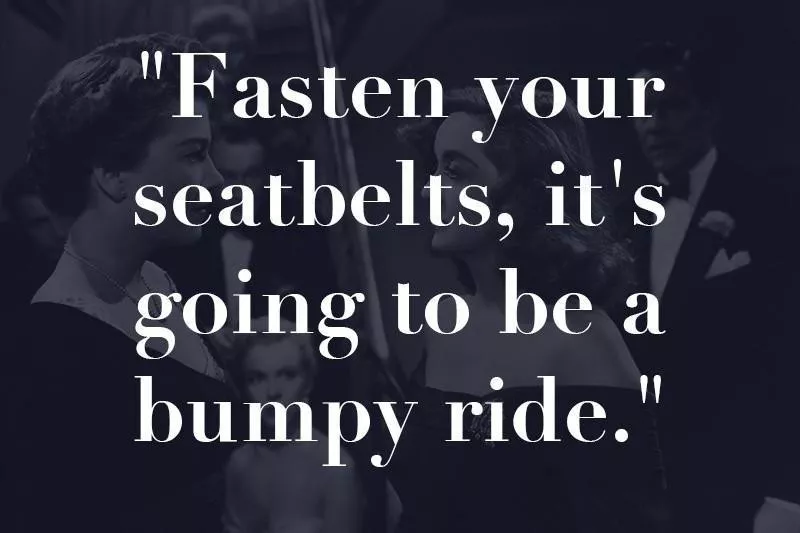
Quote: "Fasten your seatbelts, it's going to be a bumpy ride."
Who said it: Bette Davis as Margo Channing in "All About Eve"
When it was said: 1950
What people get wrong: "Fasten your seatbelts, it’s going to be a bumpy night."
Bottom Line: A Bumpy What Now?
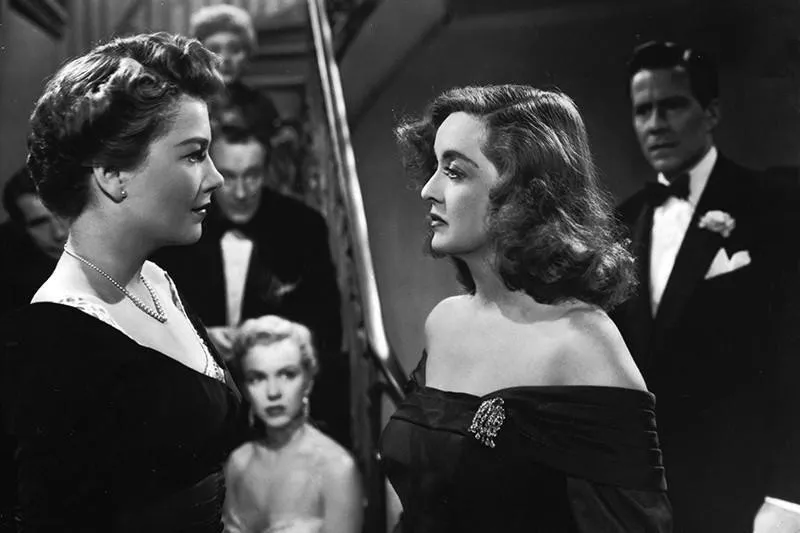
_BetteDavis / Twitter
This isn’t a quote about a car ride or a plane trip. This is an aging actress announcing that she’s going to steal the thunder at someone else’s birthday party.
One martini gulped down and she tosses out this line. It’s an absolute classic line, and it could work either way.
But the original makes a lot more sense in the context.
A Simple Hug Could Have Saved the Day.
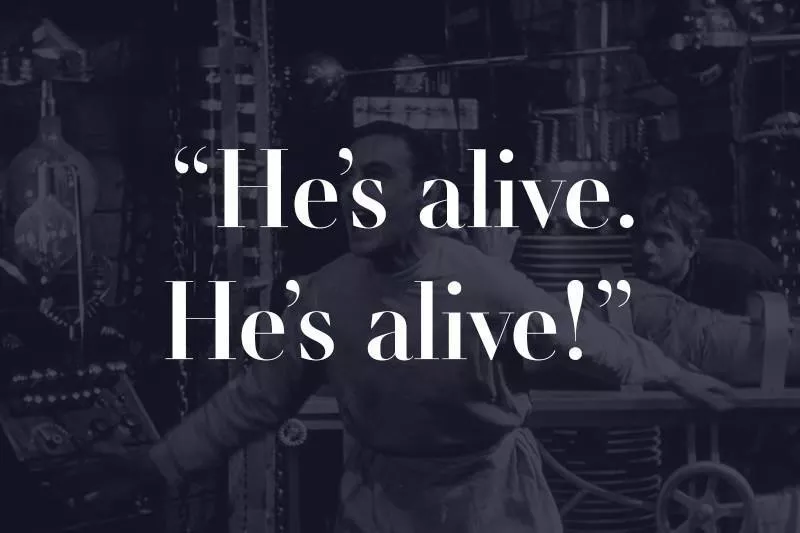
Quote: "He’s alive. He’s alive!"
Who said it: Colin Clive as Henry Frankenstein in "Frankenstein"
When it was said: 1931
What people get wrong: "It’s alive. It’s alive!"
Bottom Line: A Simple Hug Could Have Saved the Day.
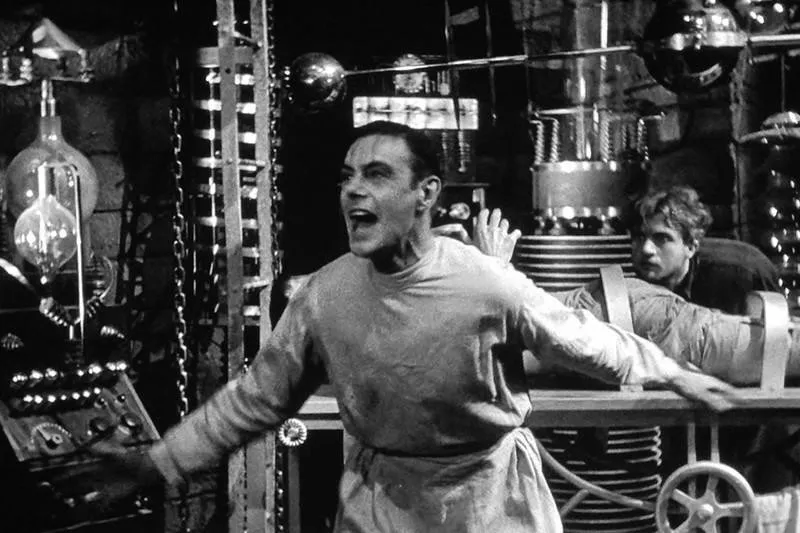
dmathches / Twitter
Does this seem trivial to you? It shouldn’t. The pronoun shift in this one makes all the difference. Saying "he’s alive" would acknowledge some humanness or at least life for Frankenstein’s monster.
By saying instead, "it’s alive," he’s denying the beast humanity, which is really what set’s the whole horror in motion. He created a being but then won’t acknowledge or love it. Ahem, we mean him!
Our question is why is Frankenstein’s first name Henry and not Victor?
Related: Phrases to Avoid If You Want to Exude Confidence and Get Ahead





